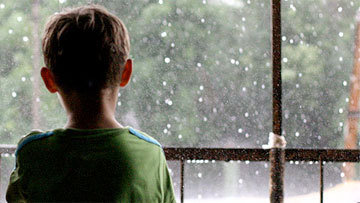MOSCOW, July 4 (RAPSI) – The ruling of the European Court of Human Rights (ECHR) in favor of U.S. nationals, who had complained of violating their rights by banning them from adoption of Russian children, became effective.
Requests for referral of the case to the court’s Grand Chamber for review submitted by the applicants and by the Russian Government were dismissed.
According to Russian lawmakers, the ban is justified by the deaths of Russian-born children adopted by American parents.
The law prohibiting U.S. nationals to adopt Russian-born children is named after Dima Yakovlev, a boy who died after his adoptive father Michael Harrison left him locked in a sweltering car. Harrison was later acquitted of involuntary manslaughter.
The law was signed by President Vladimir Putin in late 2012 and came into force in January 2013.
After the law was enacted, proceedings were halted for the American parents who were trying to adopt a child, regardless of how far into adoption process they were. Among prospective adoptive children most suffered from serious illnesses and conditions, including Down syndrome, development disorder and other illnesses.
In most cases, applicants from the United States were considered by Russian authorities as suitable adopters, according to the ECHR records. They were given a right to visit children and spend several days with them at orphanages to formally re-affirm their decision on adoption. According to some applicants, close bonds were established between children and their prospective adopters.
In January, the ECHR held that rights of the American parents had been violated. Specifically, Russian authorities violated Article 8 of the European Convention of Human Rights (right to family life) through unlawful and disproportionate interference with family lives of the applicants. In addition, Article 14 (prohibition of discrimination) was also violated as applicants were targeted on the grounds of their nationality.
The court awarded the applicants €75,000 jointly in compensation plus $14,600 in respect of costs and expenses.
The court’s judge Dmitry Dedov expressed partially concurring opinion regarding this case. He noted that ban on adoption imposed by Russia is politically motivated and from ethical standpoint the applicants and children deserve sympathy as victims of conflict between Russia and the United States. However, according to Dedov, the reason he joined other judges in this case is because “the court has found a purely technical violation of the Convention, and the amount of compensation awarded is symbolic in comparison with the court’s normal practice.”
Although Dedov agreed with the court’s decision because Articles 8 and 14 had been indeed technically violated, he emphasized that he disagreed with the court’s motivation, noting that Article 8 does not guarantee the right to found a family or adopt a child. He also expressed agreement with measures taken by Russian authorities to curb mass international adoption of Russian children, saying that it “looked like a very well-organized business”. Dedov added that national courts hold ultimate power to grant adoption rights and that it is necessary to limit inter-country adoption because of the risk of losing the child’s ethnic, religious, cultural and linguistic background.



